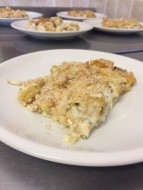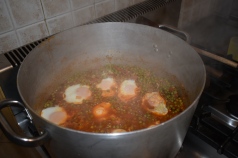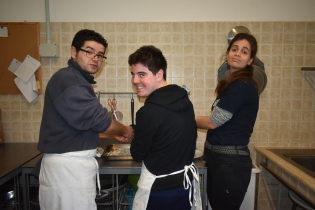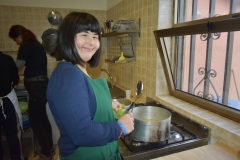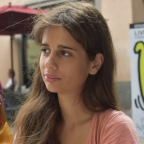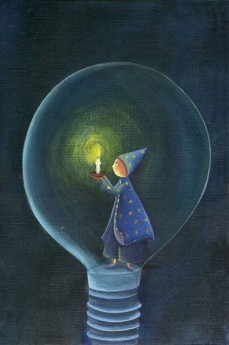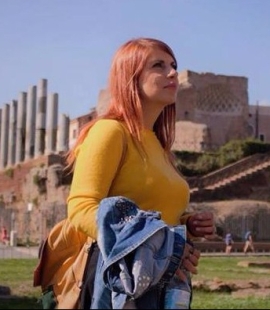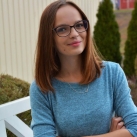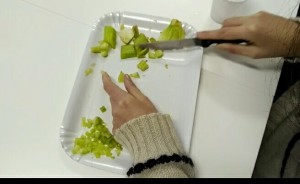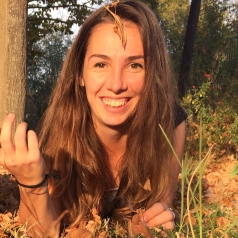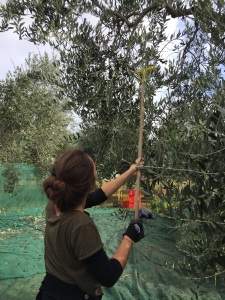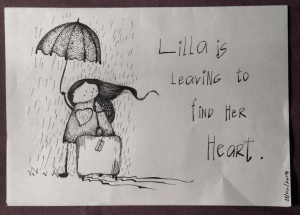Mafalda, il mentore
Persone venute da lontano, persone arrivate lontano. Ungheresi, italiani, stranieri. Le loro storie scendono dolcemente, goccia a goccia. Guardate i cerchi sull’acqua che creano! Di seguito, vi presenterò i personaggi più importanti del mio progetto di volontariato. Prima di tutto, una ragazza italiana che oltre ad essere il mentore per me e gli altri volontari, è un’ispirazione e una buona amica. In lei si trova creatività senza limiti, empatia, iniziativa, cuore e spirito.
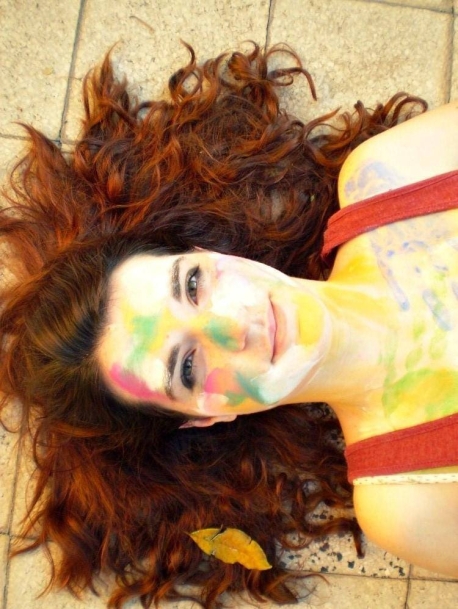
Ci siamo conosciuti a giugno 2015 – su Internet. La sua foto la mostrava con faccia dipinta, colorata. In quanto fan delle belle arti, mi sembrava un’ “anima gemella”. Così ho deciso di scriverle un’e-mail, sconosciuta: “Secondo te il corso che organizzate andrebbe bene per me? Sono una giornalista, vorrei tornare in Italia e non ho idea di come procedere dopo la mia laurea. La mia motivazione è adeguata?” E mi ha risposto gentilmente: “Iscriviti!”
La prossima scena, gennaio 2016. Mangiavamo pizza accanto ad una fontana a Roma, questa volta incontrandoci personalmente. Parlavamo dell’impatto del corso estivo e poi è emerso che ci sarebbe potuta essere una continuazione, una collaborazione a lungo termine. Si cercavano volontari stranieri per un programma annuale coordinato dalla loro organizzazione. Di nuovo, mi ha detto: “Iscriviti!”
Passavano i mesi, e io facevo a Budapest cose simili a quelle che lei faceva in Italia. Ho coordinato programmi per giovani stranieri e ho scritto articoli. Poi ho partecipato ad un altro training a gennaio 2017. Lei era formatrice, io ero partecipante. Ci siamo fatte l’occhiolino. Per la prima volta abbiamo parlato del programma di volontariato per cui avevo fatto domanda l’anno prima e che è stato approvato. Ho annuito quando mi hanno chiesto se sapevo chi sarebbe stato il mio mentore: “Non solo lo sarà in futuro, lei lo è già.”
È arrivata la fine di giugno 2017. Ci sedemmo sulle scale di una piazza medievale. La notte è arrivata. Qualche ora prima ero scesa dal treno. Lei mi è venuta a prendere alla stazione e mi ha accompagnata con la macchina al nostro alloggio. “Ti aiuterò a comprare la carta SIM, aprire il conto in banca, e ti mostrerò la città. Andiamo!”
Poi un salto nel tempo: prendiamo una tazza di tè da lei a dicembre 2017. Parlo della mia attuale vita da volontaria e condivido la mia ultima idea. “Voglio fare mini interviste con le persone più importanti della mia vita qui. Sarei contenta se tu fossi la prima. Puoi raccontarmi chi è Mafalda in questo momento? ”
– Una persona alla ricerca di un equilibrio – ha cominciato con una bella melodia di lingua, in italiano. – Sento di aver fatto molti percorsi importanti, ho imparato tanto, ma quest’anno é stato molto difficile. Succede in questo tipo di lavoro se non ti prendi cura di te; perdi la motivazione. E questo è un lavoro che se non stai bene con te stesso, non puoi fare. Perché se uno non si trova in una buona condizione, si può finire anche per fare potenzialmente male agli altri, perché è un lavoro in cui bisogna darsi molto, bisogna ascoltare. Proprio per uscire da questo periodo un po’ buio, ho cercato di sperimentare e portare nel mio lavoro sempre di più tutte le cose che mi fanno stare bene tutti giorni. Inoltre, quello che mi è venuto di scrivere per una breve presentazione di me, per un infopack: “I’m a compulsive doodler, impro actress and wannabe singer, that tries to support people in finding a way how to express themselves, their unicity and the things that make them be them, so their stories.” Ed é quello che mi piace del concetto di educazione: tirare fuori e non mettere dentro.
– Come puoi descrivere il tuo lavoro?
– Il mio lavoro per l’Italia non esiste nel senso che effettivamente non è riconosciuto. Quello che faccio io sono attività di formazione, facilitazione per giovani ed adulti, diversi tipi di gruppi e background. Sono specializzata in formazione per educatori, quindi principalmente lavoro o con gruppi di giovani o con gruppi di educatori, insegnanti, operatori, nel campo dell’educazione non formale. Cerco di creare degli scambi dove le persone possono imparare attraverso un rapporto alla pari, sopratutto attraverso un approccio esperienziale, quindi molto basato sul fare, riflettere su quello che si è fatto, e scambiarsi e confrontarsi con gli altri. Principalmente lavoro sui temi della comunicazione, dello sviluppo personale, mi piace appunto portare tutte quelle metodologie creative, artistiche che fanno parte nel mio background personale, dal teatro alla scrittura, il disegno, il canto, ultimamente tanto il gioco. Anche ho un forte background in gestione di gruppi interculturali dove la diversità è molto forte, dove le persone tra l’altro usano spesso una lingua veicolativa che spesso è l’inglese. Quindi di conseguenza, in realtà per me è anche abbastanza strano lavorare in italiano, comunque con gruppi che appartengono allo stesso gruppo linguistico, allo stesso background, perché sono abituata a molta varietà con i gruppi con cui lavoro.
– Chi è una ispirazione per te?
– Non parlerò del presidente della nostra organizzazione perché sarebbe banale, ma per me la figura del mentore si chiama Katrin. Lei è una formatrice austriaca che ho conosciuto ormai quasi 7 anni fa. L’ho sempre vista come una donna incredibilmente forte ma vulnerabile. Per me lei è stata un modello assoluto. La dolcezza e allo stesso tempo la competenza che lei porta ai gruppi, il modo in cui si apre, tiene lo spazio e ti consente di aprirti, mi sempre ha affascinata. È una donna coraggiosissima, con una grandissima intelligenza.
– Come dovrebbe essere il personaggio di mentore, secondo te, in generale?
– Idealmente è una persona che è lì per offrirti un orecchio a cui poter parlare, aiutarti a rilevare elementi della tua storia, del tuo processo e aiutarti ad unire i puntini. Ognuno sceglie che cosa vuole condividere con il proprio mentore. Magari ti aiuta nel farti le domande giuste ma ovviamente le risposte le devi trovare tu. Però è un processo di iniziazione, un processo d’autovalutazione che secondo me è molto importante sopratutto al livello di appprendimento.
Dopo la intervista, nel frattempo, siamo entrati nell’anno nuovo. Lei è a Roma, io sono a Viterbo. Siamo venute da lontano, siamo arrivate a lontano. E ancora siamo per strada.
Lilla Gősi
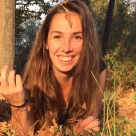
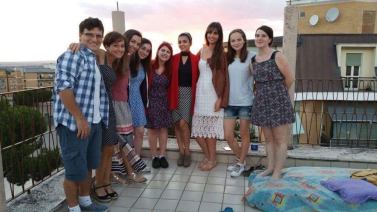
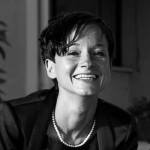

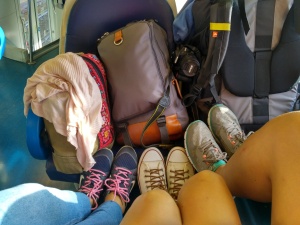 Time Passing, it has been two months since I said goodbye and took my bags and left. No matter how much you thought about it and said that it will be okay, reality is not like this. The truth, after EVS everything is different. The way you think will become different, the way you see life, friends and even yourself. When I applied to the program everyone who is involved told me that you will change, and that after this year you will become different, but no one told me that saying goodbye means that I am letting big part of myself behind me, that one day I will wakeup looking to my family and say that they do not understand me, that I want to go back to the people whom I did not make any effort to explain what I am going through. After EVS I learned one of the basic things in life; that no matter who you are or from where you come we are connected. I never thought I will write these words and say that a person that I spent ONE year with, understand me more than my life time friends. But one thing I will always give credit for EVS, no matter how long I live and where I end up in my life, EVS gave me a friend that when I am down all I have to do is to pick the photo she gave me and look to her smile.
Time Passing, it has been two months since I said goodbye and took my bags and left. No matter how much you thought about it and said that it will be okay, reality is not like this. The truth, after EVS everything is different. The way you think will become different, the way you see life, friends and even yourself. When I applied to the program everyone who is involved told me that you will change, and that after this year you will become different, but no one told me that saying goodbye means that I am letting big part of myself behind me, that one day I will wakeup looking to my family and say that they do not understand me, that I want to go back to the people whom I did not make any effort to explain what I am going through. After EVS I learned one of the basic things in life; that no matter who you are or from where you come we are connected. I never thought I will write these words and say that a person that I spent ONE year with, understand me more than my life time friends. But one thing I will always give credit for EVS, no matter how long I live and where I end up in my life, EVS gave me a friend that when I am down all I have to do is to pick the photo she gave me and look to her smile.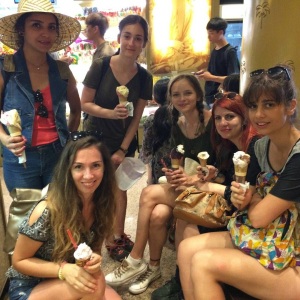 I started to write this in order to tell you how is it after EVS but through out me writing this I realized that what I am actually trying to do is to tell my FAMILY around this whole world that I miss them, that every day I am spending in my country is a reminder that the person I am now is the one who they helped converting. That I missed our long night conversations, our arguments, our kitchen and mostly our small dates. So, to my BLACK hearted girl you were my backbone in Italy and not having you here with me showed me how much I am thankful for you. To my MAMA you were my partner, my first and time can not take this from us. To my ALTA the one who’s always right, let me tell you something you were right! To the amazing eye girl, you gave the chance to be me even when you did not like it so, thank you. Finally, to the mystery of my journey thank you for showing me how really people see me.
I started to write this in order to tell you how is it after EVS but through out me writing this I realized that what I am actually trying to do is to tell my FAMILY around this whole world that I miss them, that every day I am spending in my country is a reminder that the person I am now is the one who they helped converting. That I missed our long night conversations, our arguments, our kitchen and mostly our small dates. So, to my BLACK hearted girl you were my backbone in Italy and not having you here with me showed me how much I am thankful for you. To my MAMA you were my partner, my first and time can not take this from us. To my ALTA the one who’s always right, let me tell you something you were right! To the amazing eye girl, you gave the chance to be me even when you did not like it so, thank you. Finally, to the mystery of my journey thank you for showing me how really people see me.
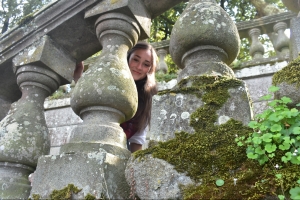
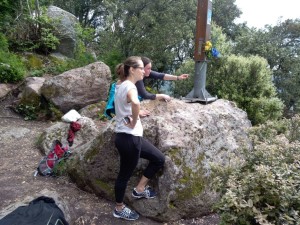
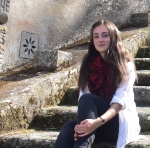
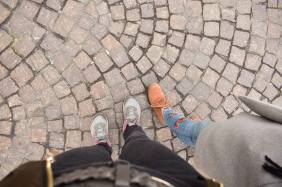 AliceNova has another center in Montefiascone where I was working in the last three months. In this center they do different activities with adults and kids with disabilities. One of the activities they realize is “attività sul territorio” where the clients have the possibility to visit several cities in the province of Viterbo.This activity gives them not only the opportunity to discover new places but to LEARN. Learn to use the bus, learn to read the road signs, learn how to behave on the streets, learn about the dangers that one can face when walking, learn to cross the road, learn more about the culture and history they live in and that surround them.
AliceNova has another center in Montefiascone where I was working in the last three months. In this center they do different activities with adults and kids with disabilities. One of the activities they realize is “attività sul territorio” where the clients have the possibility to visit several cities in the province of Viterbo.This activity gives them not only the opportunity to discover new places but to LEARN. Learn to use the bus, learn to read the road signs, learn how to behave on the streets, learn about the dangers that one can face when walking, learn to cross the road, learn more about the culture and history they live in and that surround them.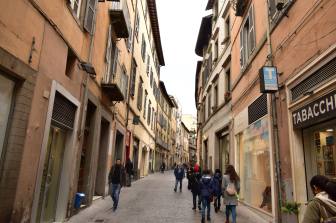
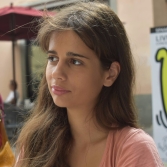
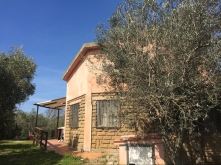 I’m writing this post because today was a special day in the little kitchen of the Ortostorto farm, one of the places that I’m currently working as a volunteer.
I’m writing this post because today was a special day in the little kitchen of the Ortostorto farm, one of the places that I’m currently working as a volunteer.